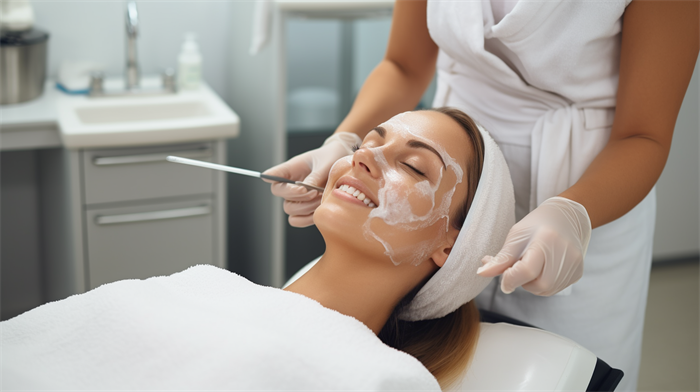Is Facial Acupuncture Safe in New Zealand?
Facial acupuncture, also known as cosmetic acupuncture or facial rejuvenation acupuncture, is a holistic treatment that aims to enhance facial appearance and overall well-being. Originating from traditional Chinese medicine, this practice involves inserting fine needles into specific points on the face to stimulate blood flow, reduce inflammation, and promote collagen production. In New Zealand, where alternative therapies are widely embraced, facial acupuncture has gained popularity. However, the safety of this procedure is a concern for many potential clients. This article delves into various aspects to determine the safety of facial acupuncture in New Zealand.

Regulatory Oversight and Standards
Safety in facial acupuncture largely depends on the regulatory framework and the qualifications of practitioners. In New Zealand, acupuncture is regulated by the Acupuncture NZ, an organization that sets standards for education, practice, and ethics. Practitioners must adhere to these standards to maintain their membership and practice legally. This regulatory oversight ensures that practitioners are well-trained and follow safe practices, reducing the risk of complications. Additionally, the Ministry of Health provides guidelines for the safe practice of acupuncture, further enhancing the safety of facial acupuncture procedures.
Training and Qualifications of Practitioners
The qualifications of the practitioner are crucial for the safety and efficacy of facial acupuncture. In New Zealand, acupuncturists typically undergo extensive training, including a Bachelor of Health Science in Acupuncture or equivalent. This education covers anatomy, physiology, and the principles of traditional Chinese medicine. Specialized training in facial acupuncture is also essential. Clients should inquire about the practitioner's qualifications and experience in facial acupuncture to ensure they are receiving treatment from a competent professional. A well-trained practitioner will know how to avoid sensitive areas and potential complications, ensuring a safe treatment experience.
Potential Risks and Complications
While facial acupuncture is generally safe, like any medical procedure, it carries some risks. Common side effects include minor bruising, swelling, and discomfort at the needle insertion sites. These are usually temporary and resolve within a few days. More serious complications are rare but can include infection, nerve damage, or adverse reactions to acupuncture. However, these risks are significantly reduced when treatments are performed by a qualified and experienced practitioner. Clients should discuss any concerns and their medical history with the practitioner before starting treatment to minimize potential risks.
Client Suitability and Health Considerations
Not everyone is a suitable candidate for facial acupuncture. Certain health conditions may contraindicate the procedure. For example, individuals with bleeding disorders, skin infections, or certain heart conditions should avoid facial acupuncture. Pregnant women should also exercise caution, as some acupuncture points are avoided during pregnancy. It is essential for practitioners to conduct a thorough health assessment before treatment to ensure the client's suitability. This pre-treatment consultation helps identify any potential risks and allows the practitioner to tailor the treatment to the client's specific needs.
Benefits and Expected Outcomes
Facial acupuncture offers several benefits, including improved skin texture, reduced fine lines and wrinkles, and enhanced facial muscle tone. It can also help with conditions like acne, rosacea, and facial pain. The expected outcomes vary from person to person, but many clients report a noticeable improvement in their facial appearance and overall sense of well-being. Regular treatments are typically recommended for optimal results. Understanding the potential benefits can help clients make an informed decision about whether facial acupuncture is right for them.
FAQ
Q: How often should I undergo facial acupuncture?
A: The frequency of treatments depends on individual needs and goals. Typically, a series of 6-10 sessions, spaced weekly or bi-weekly, is recommended initially. Maintenance sessions may be needed every few months thereafter.
Q: Is facial acupuncture painful?
A: Most clients experience minimal discomfort during facial acupuncture. The needles used are very fine, and any sensation is usually brief and mild. Practitioners take steps to ensure the treatment is as comfortable as possible.
Q: Can facial acupuncture replace cosmetic surgery?
A: Facial acupuncture is not a substitute for surgical procedures but can complement them. It offers a non-invasive alternative with fewer risks and downtime. Many clients find it effective for maintaining or enhancing their appearance without surgery.
Q: How long do the results of facial acupuncture last?
A: The longevity of results varies among individuals. Some clients notice improvements lasting several months, while others may require more frequent maintenance sessions. Lifestyle factors, such as diet and stress management, can also impact the duration of benefits.
In conclusion, facial acupuncture in New Zealand is generally safe when performed by qualified practitioners who adhere to regulatory standards. Clients should consider their suitability, understand the potential risks and benefits, and choose experienced practitioners to ensure a safe and effective treatment experience.





